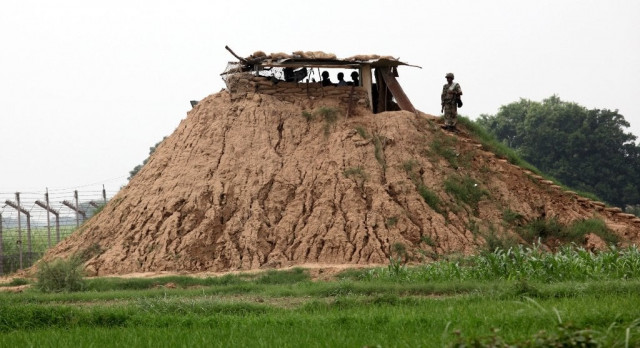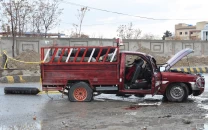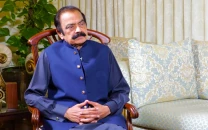Border skirmishes
Both Islamabad, New Delhi must work to smooth things over, take measures to prevent tensions from erupting again.

An Indian border post near the Line of Control. PHOTO: AFP/FILE
On January 8, India claimed that firing across the LoC by Pakistani soldiers had killed two of its troops, with the spokesman for the Indian Army’s Northern Control stating this was a violation of the ceasefire agreed on by the two sides. Pakistan has denied being involved in any incident of unprovoked firing, but cites an incident on January 6, when it says Indian troops attacked a base and killed one of its soldiers. In turn, India denies this and says its positions had been bombarded for five hours by Pakistan.

We cannot really determine what the truth is. All we have to go by is a set of statements from military offices on either side of the border. But it is certainly sad that such tensions should arise at potentially critical moments. Some analysts are already beginning to question this and ask what lies behind it. But then, perhaps we should try and stay away from conspiracy theories — even though it is quite true that there are elements on both sides of the border who would rather not see peace triumph. We must not allow these hawks to succeed, and must ensure that incidents of this nature do not stand in the way of the bigger effort to create regional harmony. The need for this has been indirectly suggested in the new Pakistan Army doctrine, which sees militants at home as the biggest threat to security, implying this threat does not come from across the border. This is something to build on. Incidents such as those at the border must not be allowed to intervene and we can, for now, only hope things will simmer down quickly before any lasting damage is done. Both Islamabad and New Delhi must work to smooth things over and take measures to prevent similar tensions from erupting again in the future.
Published in The Express Tribune, January 10th, 2013.



















COMMENTS
Comments are moderated and generally will be posted if they are on-topic and not abusive.
For more information, please see our Comments FAQ